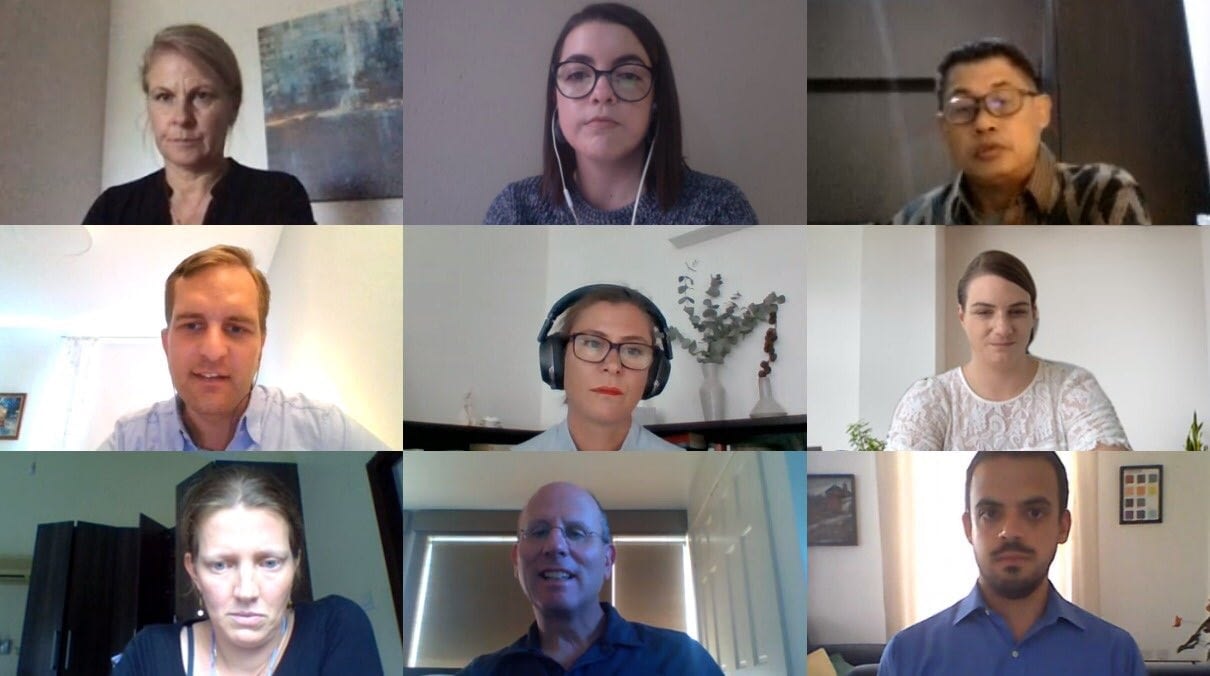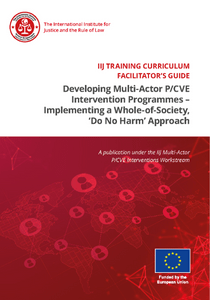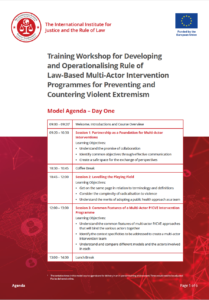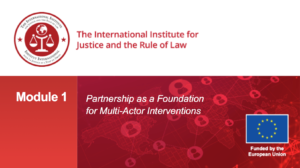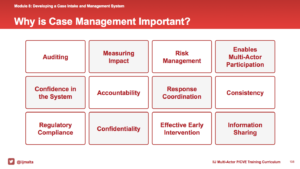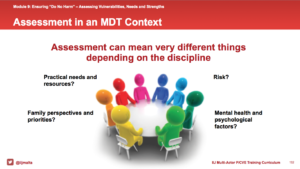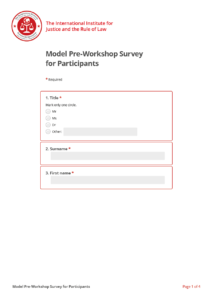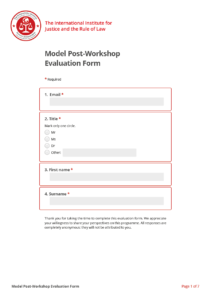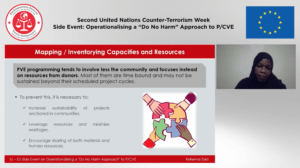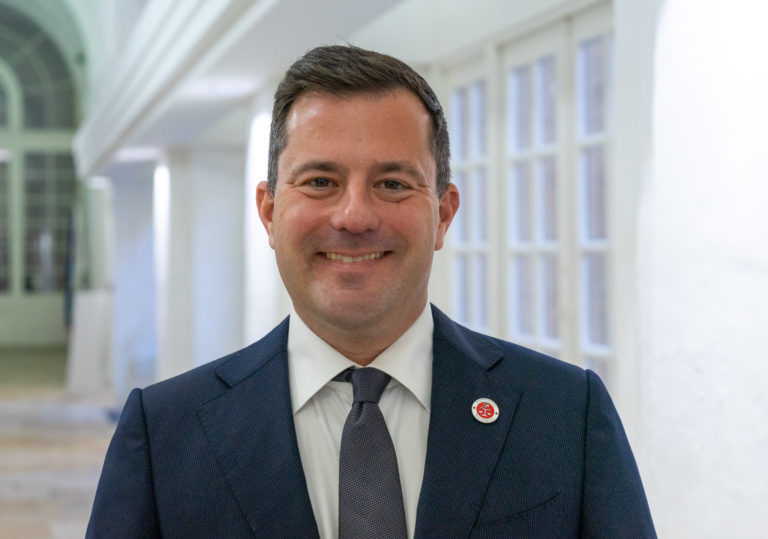Multi-Actor P/CVE Interventions Workstream
Multi-sector and multi-level collaboration within each country has increasingly been recognised by policymakers and practitioners as an important tool to identify, intervene, redirect and support individuals who are assessed to be ‘vulnerable to’, ‘at-risk of’ or already on the path to radicalisation to violent extremism and/or have expressed interest in engaging in terrorist activity, but have not committed crimes.
One of these forms of collaboration are so-called ‘referral mechanisms’, which involve one or more local actors including social and health workers, religious mentors, family members and civil society organisations. Such mechanisms enable the mobilisation of stakeholders who may be better placed to deliver an effective and preventative intervention because they have a particular competence, expertise, perceived credibility or legitimacy not possessed by local law enforcement authorities. These stakeholders can help bridge the gap where a case of concern has been identified, but law enforcement action is deemed not appropriate.
Acknowledging the effectiveness of these programmes, the IIJ has developed and piloted a first-of-its-kind curriculum to support the development and implementation of multi-actor intervention platforms for preventing and countering violent extremism (P/CVE) across the world.
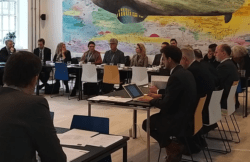
With support from the

Developing Multi-Actor P/CVE Intervention Programmes: Implementing a 'Whole of Society', 'Do No Harm' Approach
The IIJ has published a first-of-its-kind training curriculum to promote the design and implementation of multi-actor intervention programmes for preventing and countering violent extremism (P/CVE). The curriculum takes into account relevant local context and needs, and advances a ‘Do No Harm’ approach in this important area, and draws on recommendations and guidance developed by the UN, GCTF and OSCE.
The IIJ would like to thank the European Union for its generous support for this project, as well as the experts, particularly Mr. Eric Rosand, who contributed to the drafting of the training curriculum. The IIJ also extends its thanks to the government officials and non-governmental stakeholders from Kenya and North Macedonia who took part in the piloting of this important curriculum.
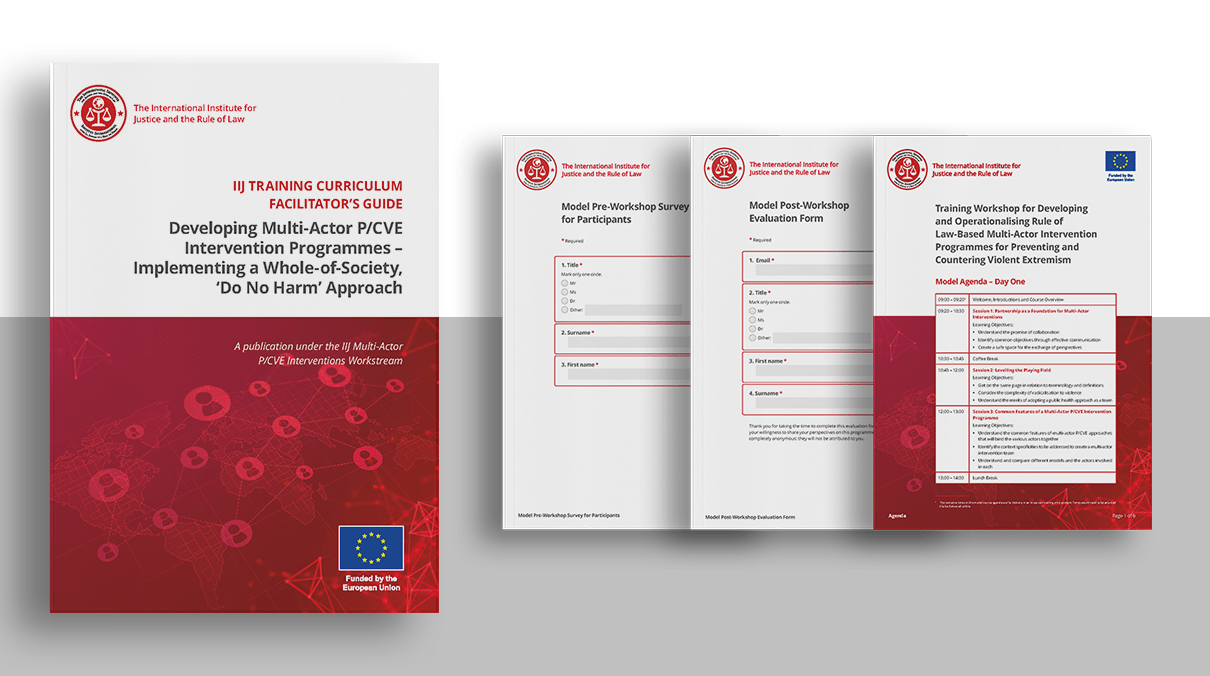
Curriculum Components
This innovative IIJ Training Curriculum has been designed for use by any policymaker, professional or practitioner with an interest in increasing their knowledge and understanding of how to develop multi-level collaborative approaches for P/CVE.
Facilitator's Guide
The Facilitator’s Guide provides information about the course, including objectives, theory of change, learning outcomes, intended audience and methodology. It also contains specific guidance for the delivery of each of the different modules in which the course is divided, as well as instructions for the preparation of the session and key messages to convey.
Model Agenda
A Model Agenda provides a suggested distribution of course modules and related activities across a four day training period. The Model Agenda can be easily adjusted, depending on whether the course is being delivered in-person or online, and whether it is being offered in full or in part (i.e., focusing on particular modules).
UN CT Week: Multi-Actor P/CVE Interventions
In June 2021, in the margins of the Second UN Counter-Terrorism Week, the IIJ and European Union co-hosted a Side Event launching a first-of-its-kind training curriculum to support the design and implementation of multi-actor intervention programmes for preventing and countering violent extremism (P/CVE). One hundred front-line practitioners and representatives of UN and GCTF Member States, international organisations and civil society participated. Speakers included Ms. Rehema Zaid, an IIJ Alum from Kenya who completed training under this new curriculum. Ms. Zaid highlighted some of the challenges that have traditionally hindered P/CVE activities in her community, and how the IIJ’s innovative curriculum supports practitioners in addressing these challenges. The Danish Centre for Prevention of Extremism’s Ms. Katrina Gillman, and Mr. Borche Petrevski, North Macedonia National Coordinator for CT and CVE, also shared their respective country models, which emphasis the importance of multi-actor coordination and collaboration – central themes of the IIJ training curriculum.
Did you miss the event? Watch a replay.
In Action
IIJ Multi-Actor P/CVE Interventions Workstream: UN Side Event – Operationalising a “Do No Harm” Approach to P/CVE
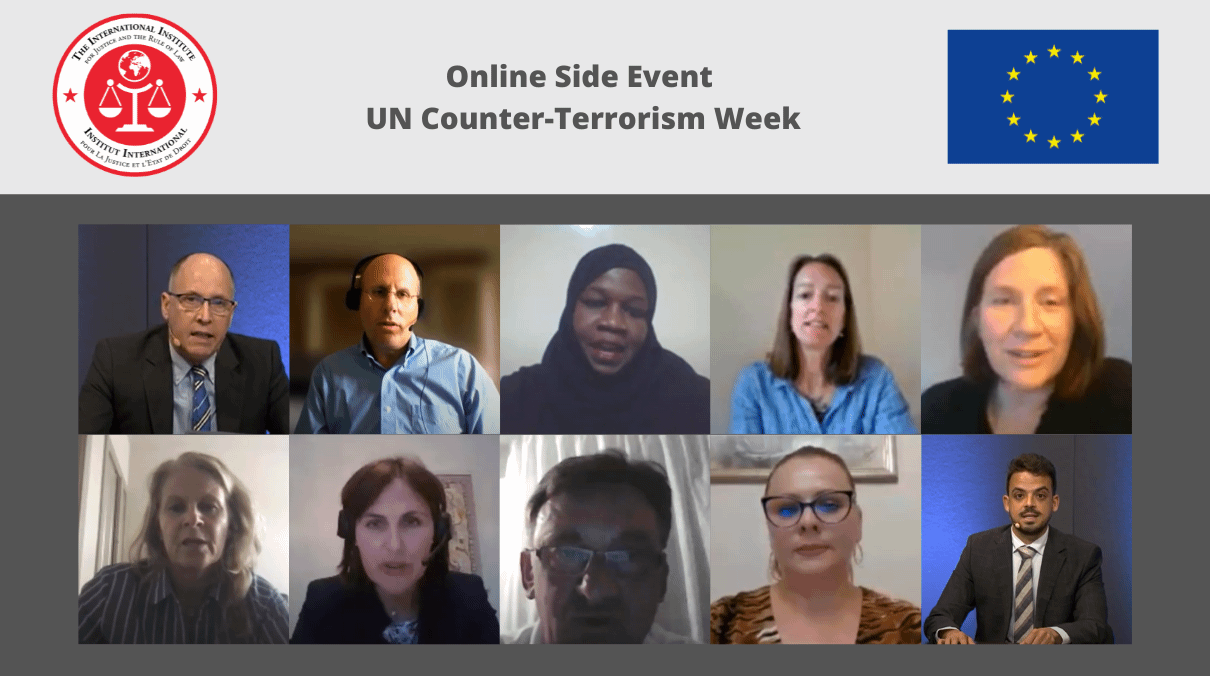
IIJ Multi-Actor P/CVE Interventions Workstream: Online Training Workshop on Rule of Law-Based Multi-Actor Intervention Programmes for P/CVE in North Macedonia
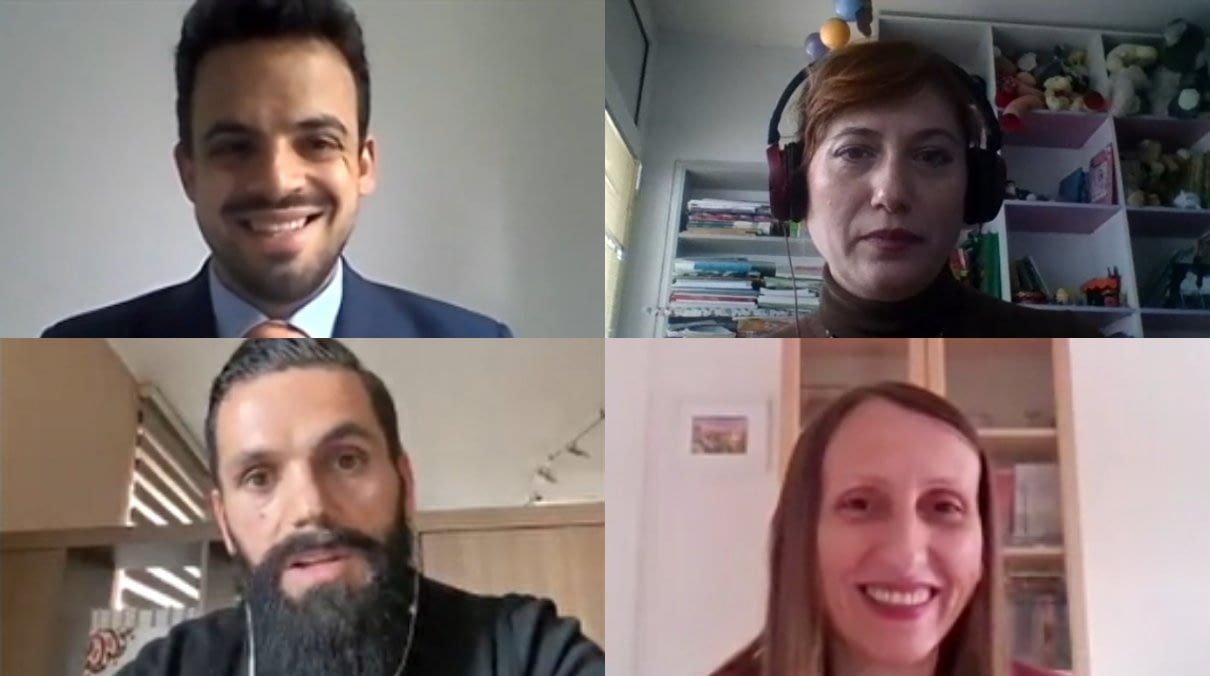
IIJ Multi-Actor P/CVE Interventions Workstream: Online Training Workshop on Rule of Law-Based Multi-Actor Intervention Programmes for P/CVE in Kenya
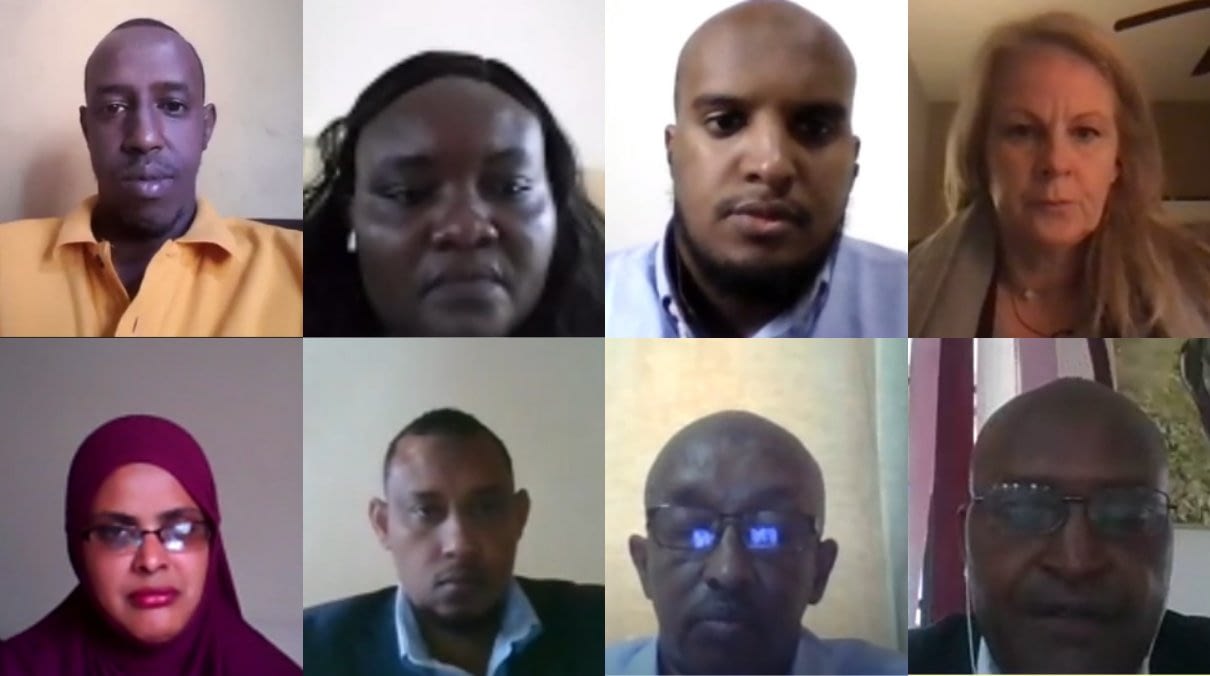
IIJ Multi-Actor P/CVE Interventions Workstream: Rule of Law-Based Multi-Actor Intervention Programmes for Preventing Violent Extremism – Practitioners’ and Curriculum Development Virtual Consultations
